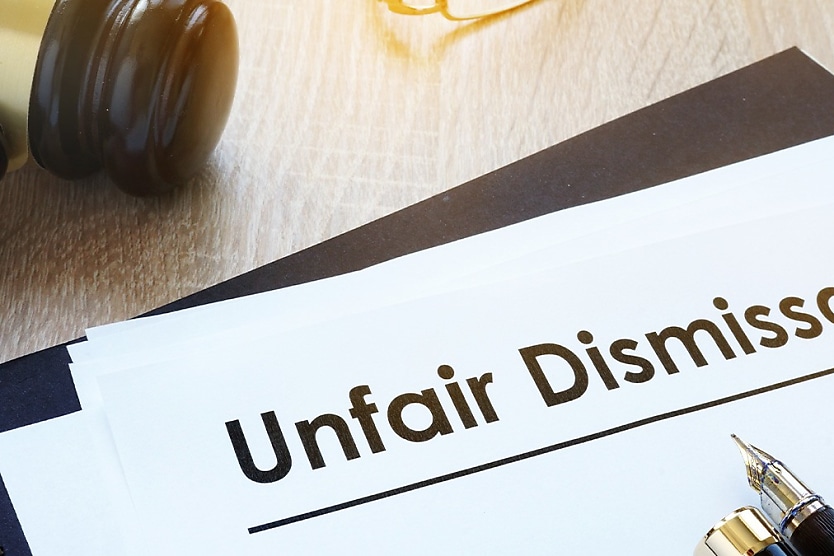Employee dismissed after avoiding drug test fails in FWC claim
SHARE THIS ARTICLE

An application was made to the Fair Work Commission (FWC) by a former employee for an unfair dismissal remedy after the company dismissed his employment on claims that he avoided a drug test.
On 14 May 2024, an employee who worked as a forklift operator at an Australia-based food manufacturing and distribution company was summarily dismissed after the company concluded that on 6 May 2024, the employee had left work to avoid a drug test.
Just two months earlier, the employee had received a final warning after he tested positive for drugs. He was told that any further breaches of the company’s drug and alcohol policy would not be tolerated.
The employee, however, contended that his dismissal was unfair, as he did not actively seek to avoid the second drug test but instead hurried home after defecating in his trousers.
The company still considered that the employee deliberately avoided the test and thereby breached its policy. This action amounted to serious misconduct; therefore, the company claimed the dismissal was not unfair.
Much of the background of what took place on 6 May 2024 was uncontested. A supervisor stated that on that day, he approached the employee and told him that he would have to undergo a drug test. At the time, the employee was operating a forklift. Upon the request, the employee allegedly replied that he had “just defecated in his pants” and left the site immediately.
According to the employee, he attended work in the morning despite feeling unwell. He stated, however, that he battled through the shift, and then had his “accident”, which caused him great embarrassment. The employee stated that the supervisor approached him in an aggressive manner to undergo the drug test, but despite this, he left and went home.
The employee then obtained a medical certificate that stated that he had been found to be “unfit for work” on 6 and 7 May 2024.
The employee claimed that he had been targeted by the company’s human resources department to undergo multiple drug tests, when other workers had not.
The supervisor recounted the events, stating that after the employee saw the piece of paper that had a testing list on it, he then said: “I’ve got to go, I just shat myself.” The supervisor told the employee that he had been selected for a drug test, and that leaving would look bad, yet the employee said he didn’t want to do the test in that condition.
The company’s human resource department was convinced that the employee avoided the drug test, as he did not have to leave the site to resolve his “accident”. They stated that he could’ve cleaned himself up in the bathroom or gone home first to clean himself and then returned to do the drug test. The company also attempted to contact the employee once he left the site, but to no avail.
The employee claimed that his phone wasn’t working.
FWC deputy president Alan Colman, who oversaw the case, stated in his decision: “I accept, with some hesitation, that [the employee] had an accident in his trousers on 6 May 2024. But I do not accept that this compelled him to leave work, or that it was the main reason that he left work.”
“He had other reasonable options open to him. He could have gone to the bathroom to clean up. He could have done the drug test and then gone home. He may not have wanted to do that. But his job was at risk: he was on a final warning for breaching the drug and alcohol policy.”
He also cited that the employee did not offer to do the test at another time or place and that he showed no concern for the company’s requirement that he submit to a drug test. He also disregarded the medical certificate, as it did not record anything in the nature of it being a medical emergency, which would only justify leaving the site.
“He [the employee] told [the supervisor] that he had had an accident in his trousers and that did not want to undergo a drug test in that condition. He also said that he was embarrassed. But these were not good or convincing reasons not to do the drug test,” Colman said.
“Nothing can be more important than protecting health and safety in the workplace, and a drug and alcohol policy is one important means of doing so. Failure to comply with a reasonable workplace drug and alcohol policy is unacceptable, first and foremost because it undermines efforts to keep workers safe, and secondly because it exposes the employer to risk.”
Colman continued: “What would have happened if [the employee] had responded tepidly with a second, now hollow, warning, and [the employee] had later injured a worker while driving his forklift with a positive drug reading? The company could reasonably have been accused of not putting safety first and of not taking all reasonable measures to protect health and safety by enforcing the terms of its drug and alcohol policy.”
“I consider that the dismissal was not harsh, unjust or unreasonable. It was, therefore, not unfair. The application is dismissed.”
RELATED TERMS
When a company terminates an employee's job for improper or illegitimate reasons, it is known as an unfair dismissal.
Kace O'Neill
Kace O'Neill is a Graduate Journalist for HR Leader. Kace studied Media Communications and Maori studies at the University of Otago, he has a passion for sports and storytelling.

